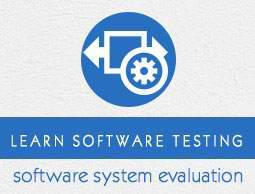Software Testing - ISO Standards
Many organizations around the globe develop and implement different standards to improve the quality needs of their software. This chapter briefly describes some of the widely used standards related to Quality Assurance and Testing.
ISO/IEC 9126
This standard deals with the following aspects to determine the quality of a software application −
- Quality model
- External metrics
- Internal metrics
- Quality in use metrics
This standard presents some set of quality attributes for any software such as −
- Functionality
- Reliability
- Usability
- Efficiency
- Maintainability
- Portability
The above-mentioned quality attributes are further divided into sub-factors, which you can study when you study the standard in detail.
ISO/IEC 9241-11
Part 11 of this standard deals with the extent to which a product can be used by specified users to achieve specified goals with Effectiveness, Efficiency and Satisfaction in a specified context of use.
This standard proposed a framework that describes the usability components and the relationship between them. In this standard, the usability is considered in terms of user performance and satisfaction. According to ISO 9241-11, usability depends on context of use and the level of usability will change as the context changes.
ISO/IEC 25000:2005
ISO/IEC 25000:2005 is commonly known as the standard that provides the guidelines for Software Quality Requirements and Evaluation (SQuaRE). This standard helps in organizing and enhancing the process related to software quality requirements and their evaluations. In reality, ISO-25000 replaces the two old ISO standards, i.e. ISO-9126 and ISO-14598.
SQuaRE is divided into sub-parts such as −
- ISO 2500n − Quality Management Division
- ISO 2501n − Quality Model Division
- ISO 2502n − Quality Measurement Division
- ISO 2503n − Quality Requirements Division
- ISO 2504n − Quality Evaluation Division
The main contents of SQuaRE are −
- Terms and definitions
- Reference Models
- General guide
- Individual division guides
- Standard related to Requirement Engineering (i.e. specification, planning, measurement and evaluation process)
ISO/IEC 12119
This standard deals with software packages delivered to the client. It does not focus or deal with the clients’ production process. The main contents are related to the following items −
- Set of requirements for software packages.
- Instructions for testing a delivered software package against the specified requirements.
Miscellaneous
Some of the other standards related to QA and Testing processes are mentioned below −
| Sr.No |
Standard & Description |
| 1 |
IEEE 829
A standard for the format of documents used in different stages of software testing. |
| 2 |
IEEE 1061
A methodology for establishing quality requirements, identifying, implementing, analyzing, and validating the process, and product of software quality metrics. |
| 3 |
IEEE 1059
Guide for Software Verification and Validation Plans. |
| 4 |
IEEE 1008
A standard for unit testing. |
| 5 |
IEEE 1012
A standard for Software Verification and Validation. |
| 6 |
IEEE 1028
A standard for software inspections. |
| 7 |
IEEE 1044
A standard for the classification of software anomalies. |
| 8 |
IEEE 1044-1
A guide for the classification of software anomalies. |
| 9 |
IEEE 830
A guide for developing system requirements specifications. |
| 10 |
IEEE 730
A standard for software quality assurance plans. |
| 11 |
IEEE 1061
A standard for software quality metrics and methodology. |
| 12 |
IEEE 12207
A standard for software life cycle processes and life cycle data. |
| 13 |
BS 7925-1
A vocabulary of terms used in software testing. |
| 14 |
BS 7925-2
A standard for software component testing. |


